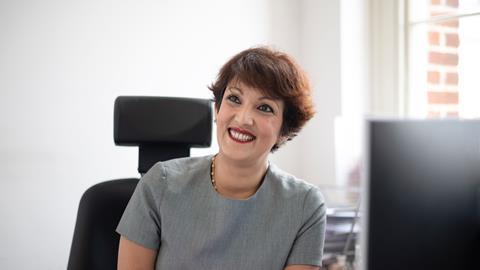Having grown up in Bangladesh, I was familiar with considerable injustice in society. I frequently saw people treated unfairly and inhumanely. Wealthy people were able to ‘buy’ justice and medical treatment, whereas poor people were denied basic human rights. I was around 10 when I developed a burning desire to enter a profession where I would have an opportunity to help people and ensure they were treated fairly and equally.
I read law and psychology at university. Psychology was a fascinating area of study which helped me gain insight into people’s behaviour. While balancing the two subjects enabled me to continue my interest in science, in the final year of my studies I chose to major in law. I felt this would enable me to embark on a career where my contribution could make the greatest difference to people’s lives.
At the time of reading law I had not decided which area to specialise in. However, the firm I trained with was a specialist clinical negligence firm and I had the opportunity to learn and develop my specialism in this field.
Given my childhood interest in science, learning about basic medicine and working alongside clinicians appealed to me greatly. I therefore grasped the opportunity the firm had given me. While there was no specific case that cemented my decision, I was able to work on many different cases which convinced me that I had found my calling.
A clinical negligence case can go on for years. All the cases I have dealt with leave a lasting memory, as they are often complex and emotive. While the case is ongoing, I often feel I am living my client’s experience to some extent, learning intimate details of their lives. Sometimes it can be very emotional as most acts of clinical negligence leave their victims in a position where resuming a normal life is near impossible. Achieving successful settlements for clients is always a high point.
However, there are occasions where, following initial investigation, we cannot take the case forward. If we are unable to prove fault or causative loss, then the client is left with no support or redress and their lives are devastated through no fault of their own. This can be heartbreaking.
When I was a newly qualified solicitor, we took a case to trial and unfortunately lost. However, we appealed. It was my belief that the judge erred both in law and on facts when delivering the judgment. The appeal succeeded but the defendant refused to settle the claim and a retrial took place. Happily this was successful. This was an important case to my client and to me, because the defendant’s denial of liability sought to besmirch his honesty; winning the appeal and the retrial preserved his integrity.
My role as an enterprise adviser is to inspire young people and prepare them for the future of work. With this support, schools and colleges can give students the skills they need to succeed
I volunteer at Action Against Medical Accidents. AvMA is a charity that provides advice and support to many thousands of people affected by avoidable harm in healthcare. The charity has succeeded in bringing about massive changes to the way that the legal system deals with clinical negligence and moving patient safety higher up the agenda in this country.
More recently, I started volunteering as an enterprise adviser for the New Anglia Careers Hub. I am a great believer in education and motivation. The hub brings together schools, colleges, employers and providers to drive forward careers education that will support the ambitions of the business community in Norfolk and Suffolk, and its young people. My role as an adviser is to inspire young people and prepare them for the future of work. With this support, schools and colleges can give students the skills they need to succeed.
I also sponsor a young girl in a developing country who is studying medicine. I hope that my sponsorship can play a part in opening doors to many opportunities for her. I am sure that one day she will be a successful doctor. I feel that if my contribution can help someone lead a better and improved life, as with the work I do in the office, it will help make the world a better place.
Hasina Choudhury is director and deputy head of clinical negligence at Thompson Smith and Puxon Solicitors, Colchester
































No comments yet